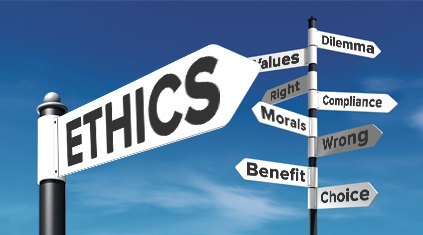Last night, in my “Text and Image” class, the topic of ethics came up. And although it may not have exactly been the direction my professor wished to go in, this prompted a huge debate of whether or not material found on personal social media pages was fair game for others to appropriate.
For the purpose of this post, since here at the UCWbL, we deal with the realm of writing, I will only talk about this in terms of written content. However, just know the same arguments could be made when it comes to images or multimedia.
Those of us who use social media platforms such as Facebook and/or Twitter, are constantly uploading text onto the internet. Whether it be through a status update or a tweet, a comment or reply, or a message or direct message, we are putting together words and sharing them with the world. Regardless of how “private” we make our personal pages, what happens on the internet, stays on the internet. And for more people to see then we may think.
Therefore, how “fair” is it for other people to use our writing?
One of my classmates told us of an ethical dilemma she had. While working on her final research paper, the subject of which has to do with reality television and the culture it has created, she found herself using content she gathered off of social media, as evidence for her arguments. For example, instead of giving hypothetical reactions to a show, that she herself simply made up for the sake of her project, she would troll Facebook and Twitter for what people were saying. And once she found something interesting, she would simply copy and paste the information, citing it as “one avid fan said…” This worked magically when it came to strengthening her claims, but she admits it felt a little wrong to just steal somebody’s “work” like that. Even if by putting it on the internet, they should always assume someone out there could be using it for personal gain.
In this particular case, I can stand behind her actions. First of all, the topic of reality television seems tame enough; it is unlikely that controversy will come from quoting a friend on her thoughts on the latest episode of The Bachelor. And second, I assume the final document will only be viewed by her professor, and perhaps a few classmates at most. It will not be published nor “leaked.”
However, when it comes to different situations, the lines get blurry. Say for instance, that an NBA player tweets something along the lines of “Damn, my team is bugging me right now.” Despite the fact that he may mean his team is not allowing him to nap on the flight home, journalists could easily take the sentiment completely out of context, and spin his words into an entire story about how so and so is unhappy with their current contract. In this case, using writing from a personal social media account becomes a problem. Yes, the athlete should remember that members of the press could be following his every move; but at the same time, it is ridiculous to expect someone to compose their posts in such a way as to make sure they could never be misconstrued.
So then, what is the final word? Is there one yet? Or will the matter of ethics when it comes to social media always be murky?

